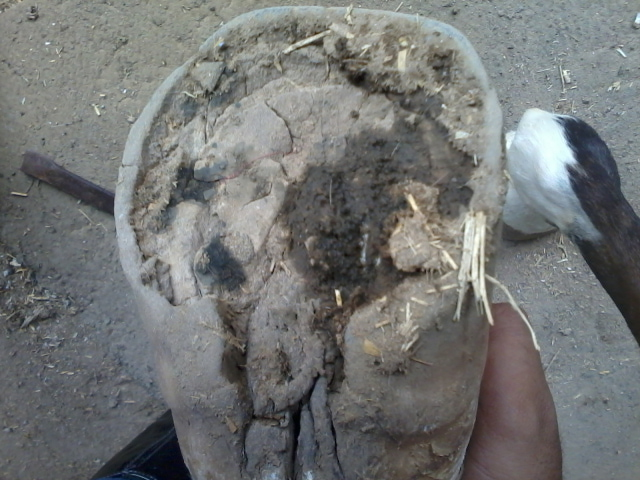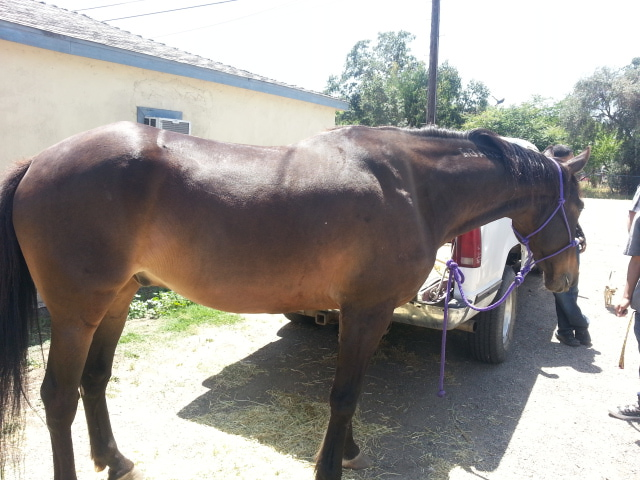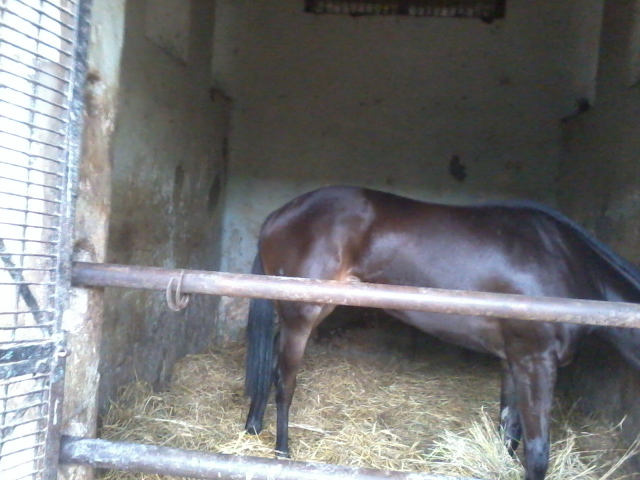QuestionI have a standardbred race horse that has a tying up problem . What can I do?
Answerhi Joe,
Tying-up is a generic term commonly used to describe muscle disease in performance horses. Other terms often used interchangeably with tying-up include exertional rhabdomyolysis, azoturia, and Monday morning disease.
Horses experiencing a bout of tying-up show signs of a stiff gait, reluctance to move, firm painful cramping muscles, profuse sweating, increased heart rate and increased respiratory rate.
In addition to clinical signs, horses that tie-up will have moderate to marked elevations in serum levels of muscle enzymes, including creatine kinase (CK), lactate dehydrogenase (LDH), and aspartate aminotransferase (AST). Elevation in muscle enzymes indicates muscle cell damage and is considered a diagnostic tool to detect tying-up.
When horses have repeated episodes of tying-up, the disease is considered chronic. Many different breeds of horses have been reported to have chronic bouts of tying-up, including Quarter Horses, Thoroughbreds, Standardbreds, Paints, Morgans, Arabians, and various breeds of both draft and warmblood horses. Fillies and mares are more susceptible and nervous horses are thought to have a higher risk of chronic tying-up.
The proposed causes of chronic tying-up include electrolyte imbalances, hormonal imbalances, lactic acidosis, Vitamin E and/or selenium deficiency, hypothyroidism, and muscle ischemia. While chronic episodes of tying-up are frustrating and painful for both the horses and their owners, it is the study of these chronically tied-up animals that has advanced our knowledge of the causes, treatment and prevention of the disease.
Recently, two specific causes of tying-up have been identified in the horse. These causes include a muscle contraction disorder (Recurrent Exertional Rhabdomyolysis, RER) and a disorder in carbohydrate storage and utilization (Polysaccharide Storage Myopathy, PSSM).
make sure your horse gets enough electrolytes and there is a supplement called tie free that works great. Each serving contains a proprietary blend of potassium chloride, magnesium, Vitamin E, sodium bicarbonate, calcium, and selenium. it is make by peak performance. good luck with your horse.
amanda groff

 thrush on hoof
Question
thrush
hello. hope you can answer this
thrush on hoof
Question
thrush
hello. hope you can answer this
 help identify my horse
Question
thunder
Hello I am asking for help I ha
help identify my horse
Question
thunder
Hello I am asking for help I ha
 pony mares - Rick Gore Horsemanship
Question
Millie and Angel Millie and Angel
pony mares - Rick Gore Horsemanship
Question
Millie and Angel Millie and Angel
 very good hind end confirmation
Question
hind end
hello maam. i believe that thi
very good hind end confirmation
Question
hind end
hello maam. i believe that thi
 Sores on horses
QuestionQUESTION: this is kinda gross so i apologize to
Sores on horses
QuestionQUESTION: this is kinda gross so i apologize to